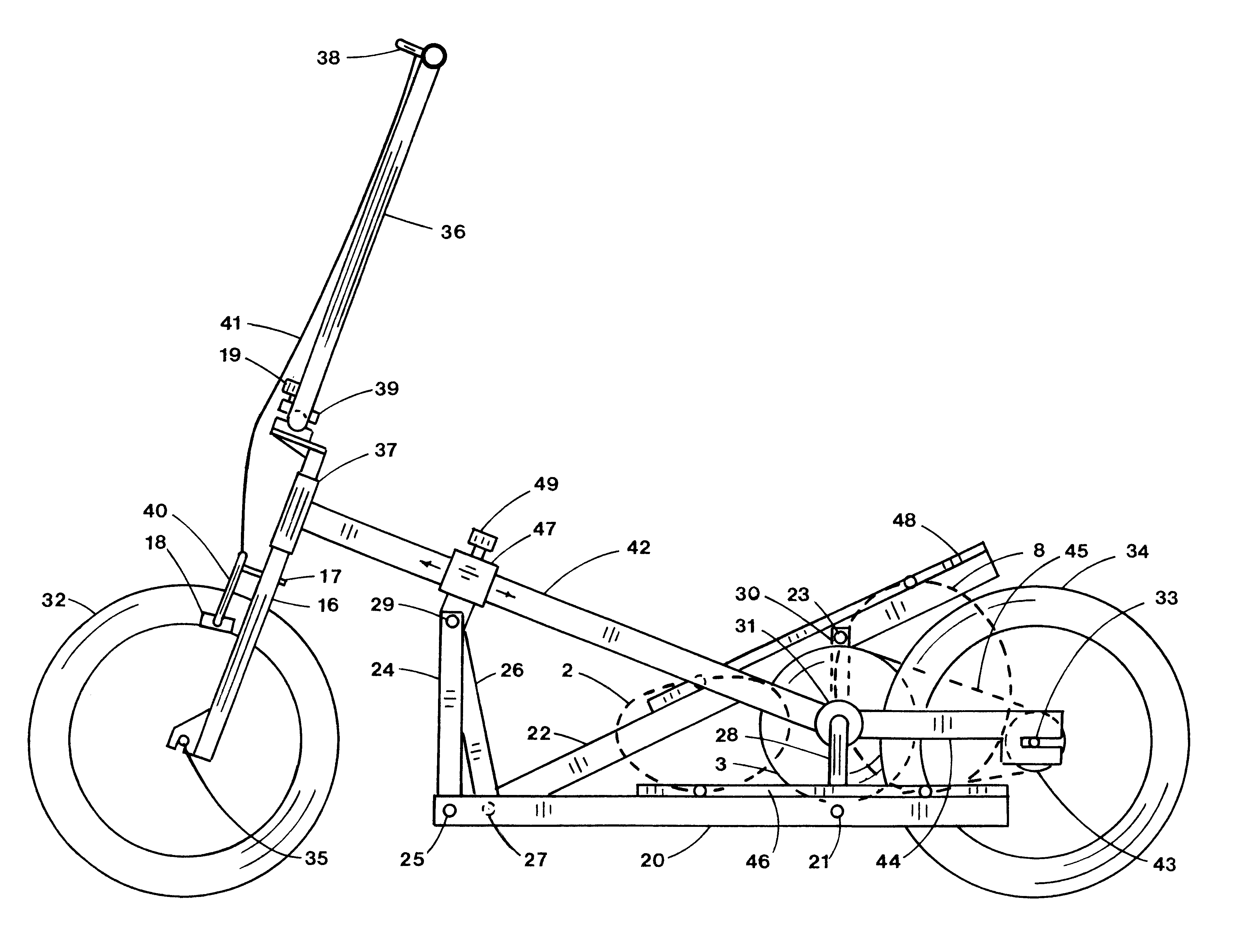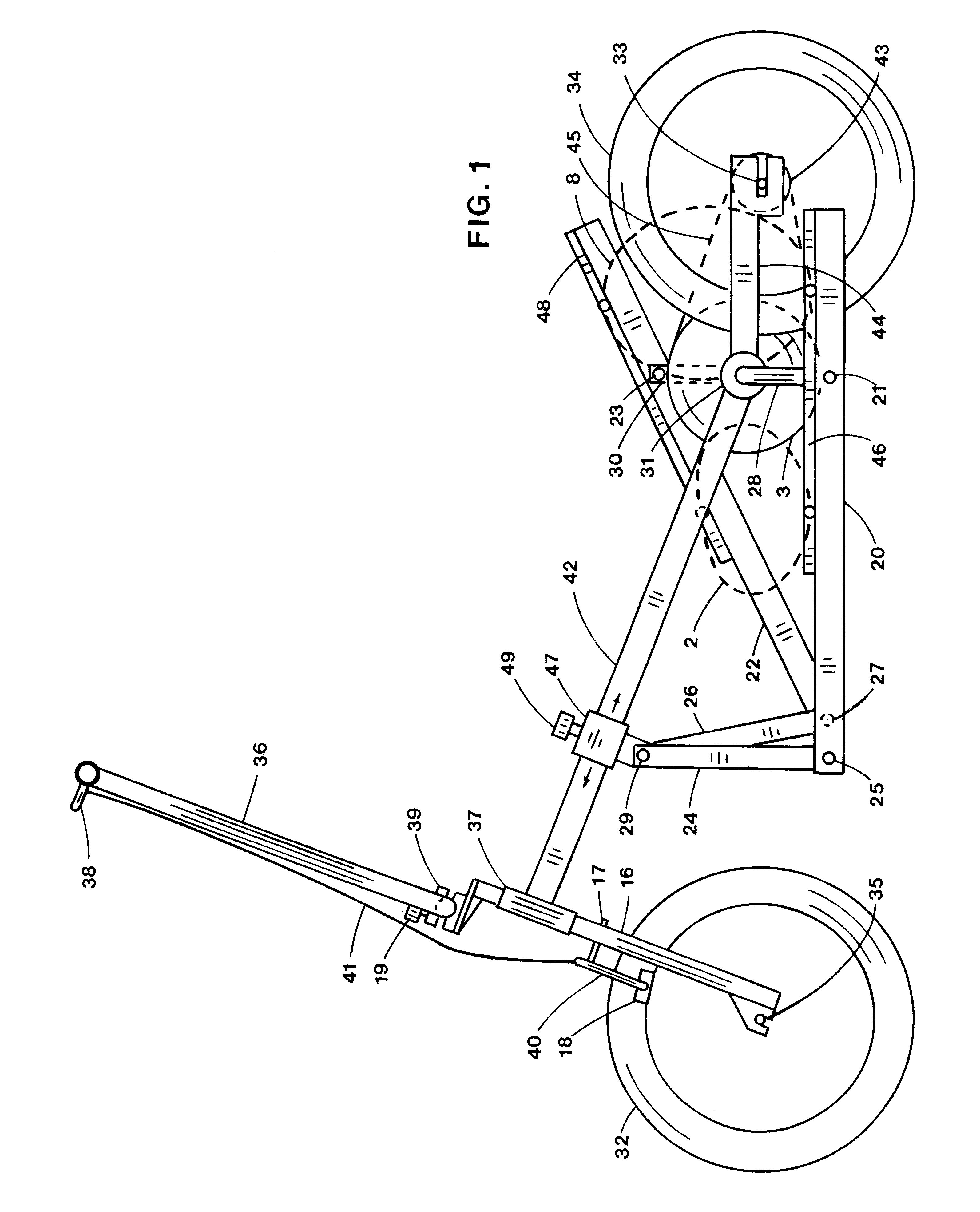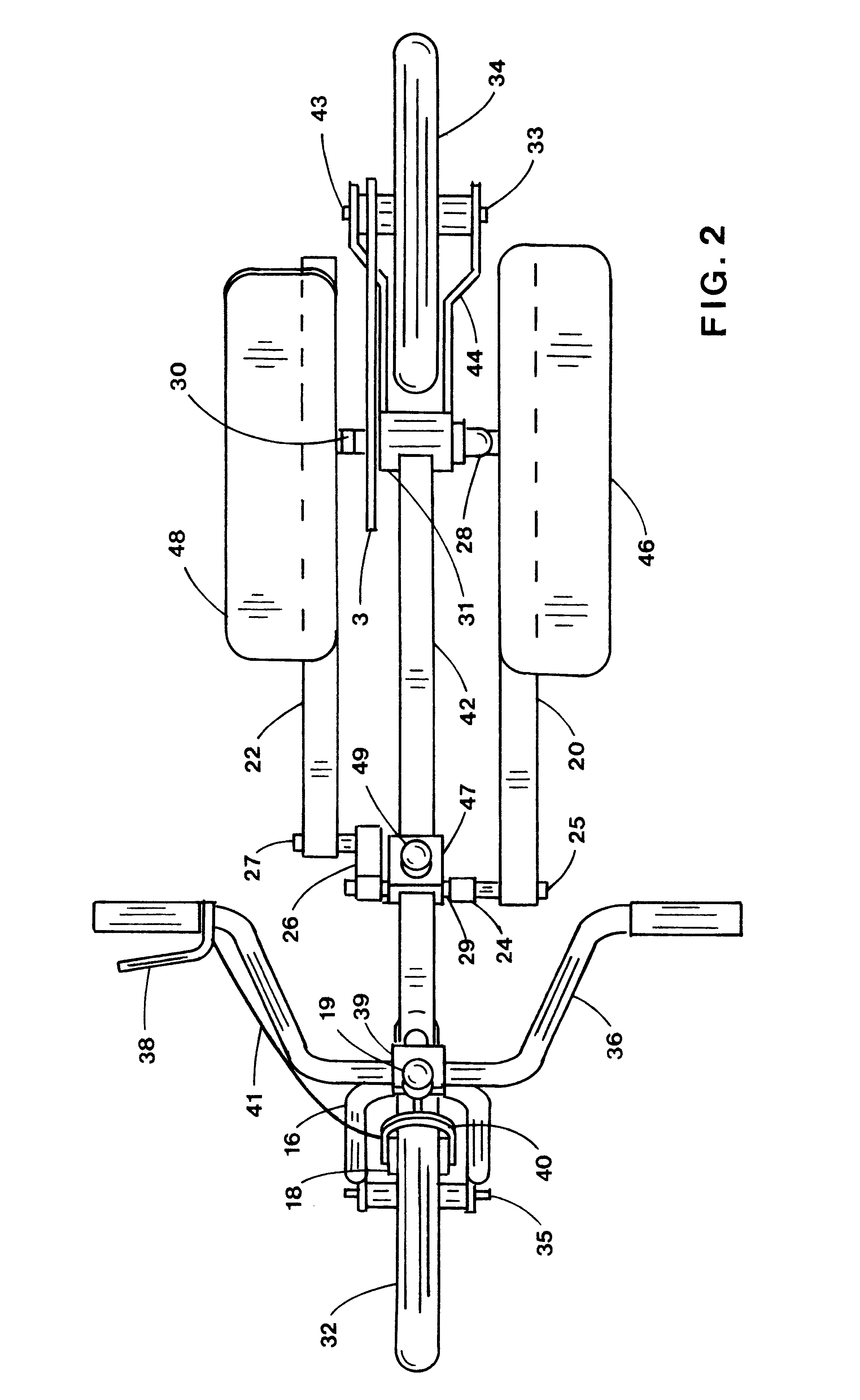Exercise scooter
a technology of exercise scooters and pedals, which is applied in the direction of foot-driven levers, gymnastic exercise, sport apparatus, etc., can solve the problems of slow scooter speed, insufficient support of standup only operation, and insufficient propulsion of freely rotating pedals, etc., to achieve stable pedal operation, improve propulsion efficiency, and facilitate operation.
- Summary
- Abstract
- Description
- Claims
- Application Information
AI Technical Summary
Benefits of technology
Problems solved by technology
Method used
Image
Examples
Embodiment Construction
Referring to the drawings in detail, pedals 46,48 are shown in FIGS. 1 and 2 in generally their highest and lowest positions of the preferred embodiment. Pedals 46,48 are supported by foot support members 20,22. Cranks 28,30 are maintained generally 180 degrees apart and are rotatably connected to crank housing 31. Foot support members 20,22 are connected at one end to cranks 28,30 at pivots 21,23 and to rocker links 24,26 at pivots 25,27. Pivot collar 47 and locking knob 49 are movably connected to frame member 42 and to rocker links 24,26 at pivot 29. Moving pivot collar 47 along frame member 42 to a different position changes the predetermined angles of pedals 46,48.
First wheel 32 is rotatably connected to fork 16 at axle 35. Fork 16 is rotatably connected to fork housing 37 to accommodate steering. Knob 19 locks clamp 39 to secure handlebar 36 to fork 16. When knob 19 is loosened, handlebar 36 may be rotated about clamp 39 to be folded down for stowage.
Second wheel 34 is rotatab...
PUM
 Login to View More
Login to View More Abstract
Description
Claims
Application Information
 Login to View More
Login to View More - R&D
- Intellectual Property
- Life Sciences
- Materials
- Tech Scout
- Unparalleled Data Quality
- Higher Quality Content
- 60% Fewer Hallucinations
Browse by: Latest US Patents, China's latest patents, Technical Efficacy Thesaurus, Application Domain, Technology Topic, Popular Technical Reports.
© 2025 PatSnap. All rights reserved.Legal|Privacy policy|Modern Slavery Act Transparency Statement|Sitemap|About US| Contact US: help@patsnap.com



